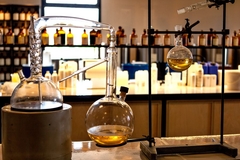Polynucleotides injectables for skin revival and radiance

14 Jun 2024 --- Beauty enthusiasts are turning to injectable polynucleotides, derived from fish sperm, salmon milt or other natural tissues, to try to repair and revitalize skin.
The biostimulators apparently work on the body’s natural regenerative processes at the cellular level. According to Dr. Paulina Charlesworth, the salmon DNA treatments, which mimic human DNA, are touted to promote collagen, revitalize skin and repair cells.
The trend is backed by a study that reveals promising results for Polynucleotides High-Purification Technology (PN HPT) in enhancing skin regeneration and rejuvenation among Asian populations. The study focused on four skin quality categories: skin tone evenness, skin surface evenness, skin firmness and skin glow, in a sample of 30 Asian people.
“Significant improvement”
Three intradermal injections of a PN HPT-based medical device were given over eight weeks. Researchers conducted evaluations four and six months after the first treatment.
 Intradermal PN HPT injections significantly improved skin surface, firmness and radiance.The surface, firmness, pigmentation and radiance of the skin all “significantly” improved, and no side effects were noted. Six months later, 33% of participants reported feeling “much improved,” and 43% reported feeling “very much improved.” Additionally, 56% and 44% of participants reported feeling “satisfied” or “very satisfied,” respectively.
Intradermal PN HPT injections significantly improved skin surface, firmness and radiance.The surface, firmness, pigmentation and radiance of the skin all “significantly” improved, and no side effects were noted. Six months later, 33% of participants reported feeling “much improved,” and 43% reported feeling “very much improved.” Additionally, 56% and 44% of participants reported feeling “satisfied” or “very satisfied,” respectively.
Mastelli, an Italian biomimetic technology developer, created PN HPT, which encourages cell growth and vitality. The paper says PN HPT supports fibroblast activity and the production of new extracellular matrix, leading to tissue repair and collagen deposition. The process helps combat aging signs, such as fine lines, dryness and loss of firmness.
Quantitative outcomes
The study included subjects aged 18 and above, with a mean age of 40.2 years. At the final evaluation, all participants showed sustained improvements in skin quality.
The Global Aesthetic Improvement Scale (GAIS) and the QuantifiCare 3D skin analysis system were used for quantitative and qualitative evaluations.
The mean Investigator GAIS score was 3.33 out of 5 for skin tone evenness, 3.46 for skin surface evenness, 3.61 for skin firmness and 3.45 for skin glow.
Participants rated the intradermal injections as mostly “comfortable” or “very comfortable,” with no reports of discomfort. The use of a cannula for administration received more positive feedback compared to needle injections.
Study implications
The study notes that PN HPT differs from fillers and other rejuvenation methods in promoting fibroblast activity and increasing skin volume without leading to fibrosis.
 Polynucleotides are effective against erythema.In contrast to Platelet-Rich Plasma therapies, which might result in discomfort and inflammation, PN HPT injections do not hurt and have few adverse effects, say the researchers.
Polynucleotides are effective against erythema.In contrast to Platelet-Rich Plasma therapies, which might result in discomfort and inflammation, PN HPT injections do not hurt and have few adverse effects, say the researchers.
Although the lack of a control group and the study’s non-randomized design are drawbacks, more robust designs are planned for future research.
Treatment for older skin
Harley Academy clinical trainer and aesthetics specialist Dr. Lindsay Jones suggests the procedure can benefit older people “with moderate tissue laxity.” Younger people can also benefit, but the results are less dramatic.
Jones distinguishes the treatment from other injectables: “Polynucleotides used in aesthetics are generally derived from fish gonads, whereas hyaluronic acid (HA) fillers are usually derived from bacterial fermentation. Thus, polynucleotides cannot be used in patients with fish allergies.”
“HA fillers are generally designed to add volume and hydration to tissues, while polynucleotides are stimulatory in their mechanism of action.”
Treatment of facial erythema
In another study, South Korean cosmetic physicians used polynucleotides as a combination treatment for facial erythema (redness) caused by inflammation from facial dermatosis and repeated laser or microneedle radiofrequency.
The study surveyed 557 physicians using polynucleotides for facial erythema.
“Polynucleotides were used by 84.4%, 66.4%, and 47.4% of physicians for facial erythema caused by inflammatory facial dermatosis, repeated laser or microneedle radiofrequency and steroid overuse, respectively,” details the paper.
“Among those users, 88.1%, 90%, and 83.7%, respectively, in those same categories, answered that polynucleotides were ‘highly effective’ or ‘effective.’ Furthermore, they agreed that polynucleotides have the following properties: wound healing or regeneration (95.8%), protection of skin barrier (92.2%), hydration (90.5%), vascular stabilization (81.0%) and anti‐inflammation (79.5%).”
By Venya Patel













